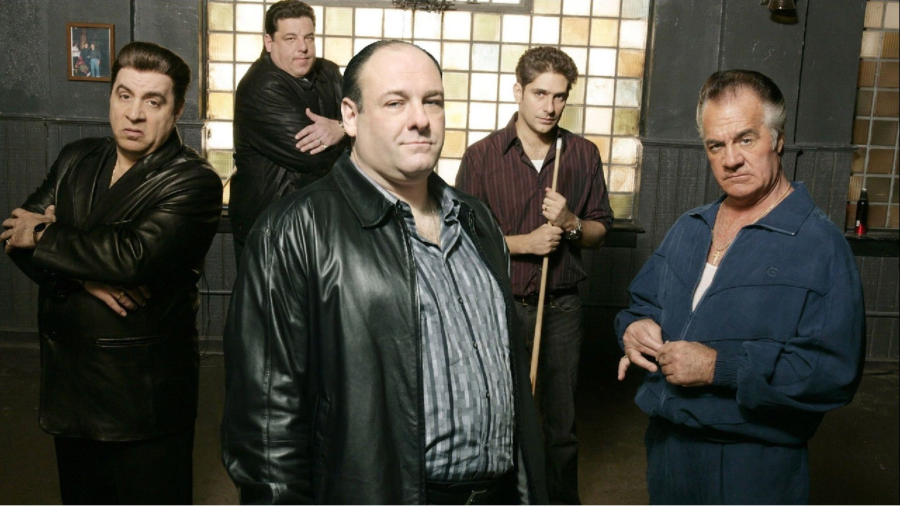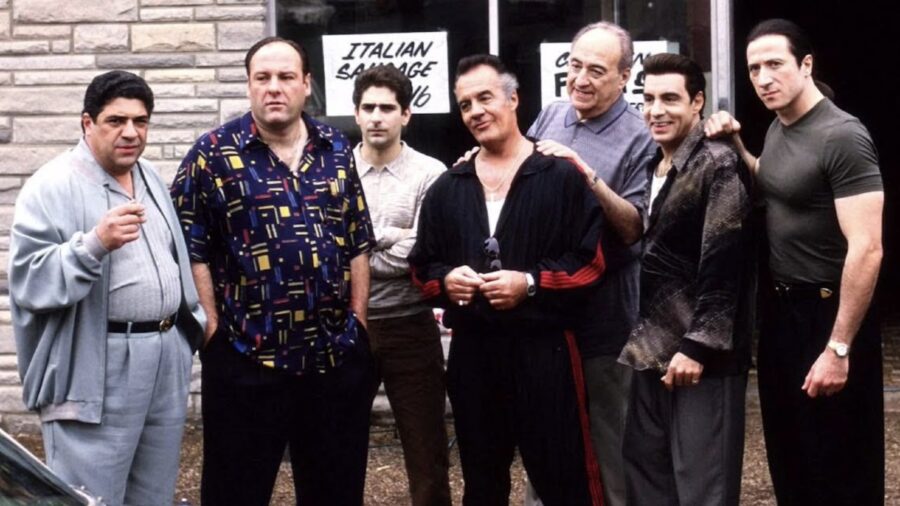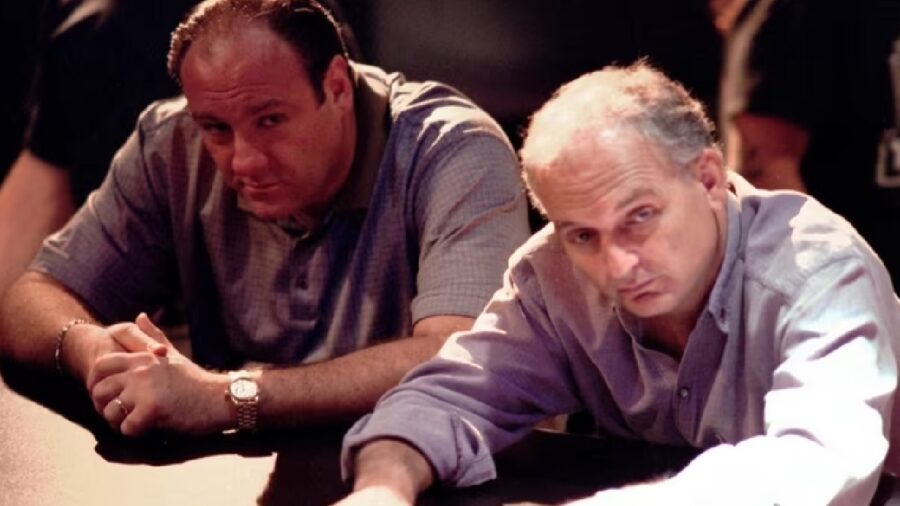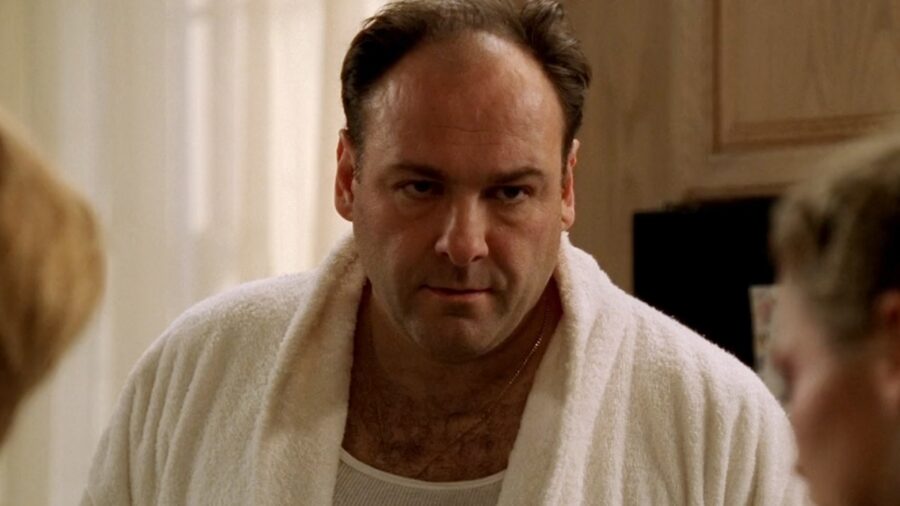The Sopranos Is Still Changing Television 25 Years Later

It’s a cliche to say when looking back at a momentous event that “no one knew the impact it would have,” but when talking about The Sopranos, that cliche isn’t true at all. The impact of mob boss Tony Soprano walking into Dr. Melfi’s office landed with the force of an atomic bomb, and by the end of the pilot, television would never be the same again. Yet, what no one could have predicted is that 25 years later, the series that coined the term “prestige television” and introduced the world to a new type of anti-hero would be more popular than ever before.
The Timeless Appeal Of The Sopranos

From the iconic opening shots of New Jersey set to “Woke up this morning” to the infamous final shot of the series, The Sopranos is the quintessential mafia series, a perfect crime series, and one of the best character-driven dramas ever put to film. But in 2024, it’s how James Gandolfini portrayed a tough, Alpha male character struggling to take care of his mental health and deeply ashamed of anyone finding out he was in therapy that helps it remain relevant today. Millennials, now approaching their own mid-life crisis, can look back at the series and appreciate Tony’s struggles in a whole new light.
Younger generations have been celebrating The Sopranos all year through the use of memes, and it seems like the series has a screengrab or iconic moment perfect for every occasion, including Gen Z embracing Carmella Soprano in a way no one did while the show was airing. The “Mob Wife Aesthetic,” a celebration of over-the-top fashion and, most importantly, attitude, has its base in Edie Falco’s Carmella and Drea de Matteo’s Adriana. There was even a hit re-watch podcast hosted by Michael Imperoli and Steve Schirppa, Talking Sopranos, that featured many of the stars of the series, including regulars like Loraine Bracco (Dr. Melfi) and Steven Van Zandt (Silvio) to Steve Buscemi and even Ariel Kelley, she was Tracee, the Bada-Bing dancer featured in the Season 3 episode “University.
More people have streamed The Sopranos on Max than watched it when it first aired on HBO. The real reason why is that beyond the memes, TikTok trends, or nostalgia-filled podcasts, is that it was well-written, well-acted, and the result of the singular vision of a talented creator: David Chase.
The Insane Genius Of David Chase

HBO recognized the importance of David Chase to The Sopranos with the recent release of Wise Guy: David Chase and the Sopranos on Max, a two-part documentary that is a must-watch for fans of the series. Starting with Chase’s childhood and his personal life, to audition footage, and then, for the very first time, footage of Chase speaking at James Gandolfini’s funeral. It’s short, with only two episodes, but the inclusion of archival interviews with the likes of Gandolfini and Nancy Marchand (Livia Soprano), with fresh insights from Imperiolo, Lorraine Bracco, Steven Van Zandt, and Edie Falco, makes it well worth the investment.
A highlight of Wise Guy is the insight into The Sopranos Season 1, including “College,” the episode that set the tone for the rest of the series by highlighting Tony as both a doting father and a ruthless crime boss and how it forced audiences to reconcile their feeling of sympathy for a man capable of choking another to death.
The toll of starring in a show as wildly successful and as dark as The Sopranos is a theme that David Chase goes back to over and over regarding James Gandolfini. Playing Tony Soprano was hard for the star, who, according to the show’s creator, brought the character back home with him and ended up suffering as a result. Those parts of Wise Guy can be hard for fans to listen to, but they are still integral to what makes the show an all-time classic and why, even today, it’s impossible to do a crime series or even a prestige drama and not be compared to The Sopranos.
One Of The Greatest Shows In History

Without The Sopranos, there would never have been a Breaking Bad, Mad Men creator Matt Werner worked under David Chase as a writer for The Sopranos and even other dark dramas focused on anti-heroes, including The Shield, Rescue Me, House of Cards, and Sons of Anarchy, never would have been greenlit before the explosive popularity of Tony Soprano. Years after it came to a shocking end, its influence was felt in HBO’s own Boardwalk Empire, and then a decade after the finale, it echoed throughout Peaky Blinders until today, with Sylvester Stallone’s Tulsa King, the most recent take on The Sopranos formula.
Even other drams owe a debt to the mafiosos of New Jersey, including the critically acclaimed Succession, whose Roy family has more in common with the Sopranos than they’d ever admit. Still, it goes to show how far ahead of its time the mob drama truly was. Prior to The Sopranos, cable series were more titillating than thought-provoking, and despite the Bada Bing, David Chase infused his series with nuanced, multifaceted characters that all had something to say about the human experience.
It’s that level of high-brow writing and Shakespearean themes set against the blue-collar neighborhoods of New Jersey and the appeal of the Mafia that has made The Sopranos a bigger hit in 2024 than it was in 1999. Even The Many Saints Of Newark, a poorly received prequel movie with James Gandolfini’s son as a young Tony, couldn’t do any damage to the legacy of the original show. There are shows like it on the air now, but there’s nothing better, and there never will be.














Login with Google